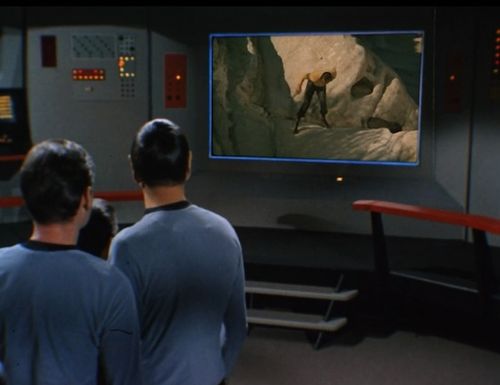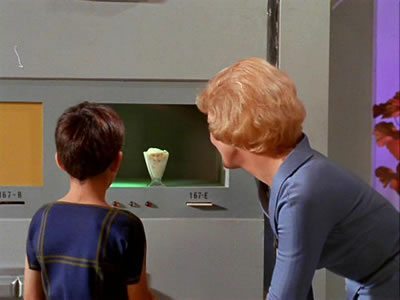
For years, I’ve been a fan of Star Trek, and have used their
innovations in many presentations, but I’ve always wondered: how come there’s
no money on the Star Ship Enterprise?
Is everything free?
Not exactly.
My supposition was that the future world of Star Trek,
bearing in mind that it’s set in the 24th Century, is based upon
chips embedded inside the crew and these chips wirelessly register consumption
and spending on an account tab.
Not the case, as it turns out.
Gene Rodenberry, Star Trek’s creator, instead believed that
money no longer existed. He believed
this as his view of how capitalism and finance worked was one where he was concerned
that people were enslaved by aspirations of accumulating wealth.
From Yvonne Fern’s book The Last Conversation,
Gene Roddenberry says that: “Money is a
terrible thing. Why do people work at jobs in Star Trek? Why does someone
become a baker? Because the family is going to starve to death? No. People
become bakers because certain people love the smell of things baking.”
So he didn’t like money.
What would Star Trek do instead?
Work for the improvement of mankind by boldly going where
no-one had gone before, and hang the expense.
This is a theme explained and explored on regular occasion
throughout the Star Trek series and filsm.
Captain Jean-Luc Picard in states in Star Trek TNG episode The Neutral Zone: “A lot has changed
in three hundred years. People are no longer obsessed with the accumulation of
'things'. We have eliminated hunger, want, the need for possessions.”
This is repeated in the film Star Trek: First Contact, where
Picard states: “The economics of the
future is somewhat different. You see, money doesn't exist in the 24th
century... The acquisition of wealth is no longer the driving force in our
lives. We work to better ourselves and the rest of humanity.”
And reinforced in Star Trek: Deep Space 9. From the episode In the Cards, Jake and Nog are debating
buying something:
Jake Sisko: I'm Human,
I don't have any money.
Nog: It's not my fault
that your species decided to abandon currency-based economics in favor of some
philosophy of self-enhancement.
Jake Sisko: Hey, watch
it. There's nothing wrong with our philosophy. We work to better ourselves and
the rest of Humanity.
Nog: What does that
mean, exactly?
Jake Sisko: It means
we don't need money.
Although this was an inconsistent theme at the start of the
Star Trek series – there are various references to sales, money and credits in
various episodes – by the time that Star
Trek: The Next Generation (TNG) series came around in the 1990s, money was definitely
dead.
Ronald Dowl Moore, a writer and producer of several Star
Trek series and films, said as much in an interview on AOL chat in 1997: “By the time I joined TNG, Gene had
decreed that money most emphatically did NOT exist in the Federation, nor did
'credits' and that was that. Personally, I've always felt this was a bunch of
hooey, but it was one of the rules and that's that.” (AOL chat, 1997)
Now at the risk of becoming too nerdy, what’s the point?
It’s just science fiction isn’t it?
Maybe not.
After all, Star Trek invented the mobile telephone …

… flat screen HD-TVs …

… microwaves …

So could money disappear and we are all purely motivated by working
for human betterment?
Possibly.
As we have a lot of NGOs out there now, such as Make Poverty
History
and No More Poverty, if we
eliminate poverty, what happens next?
If we move to a world of philanthropy, what happens after?
Can the world work without monetary control?
Star Trek facts and quotes sourced from Memory Alpha
Chris M Skinner
Chris Skinner is best known as an independent commentator on the financial markets through his blog, TheFinanser.com, as author of the bestselling book Digital Bank, and Chair of the European networking forum the Financial Services Club. He has been voted one of the most influential people in banking by The Financial Brand (as well as one of the best blogs), a FinTech Titan (Next Bank), one of the Fintech Leaders you need to follow (City AM, Deluxe and Jax Finance), as well as one of the Top 40 most influential people in financial technology by the Wall Street Journal's Financial News. To learn more click here...

